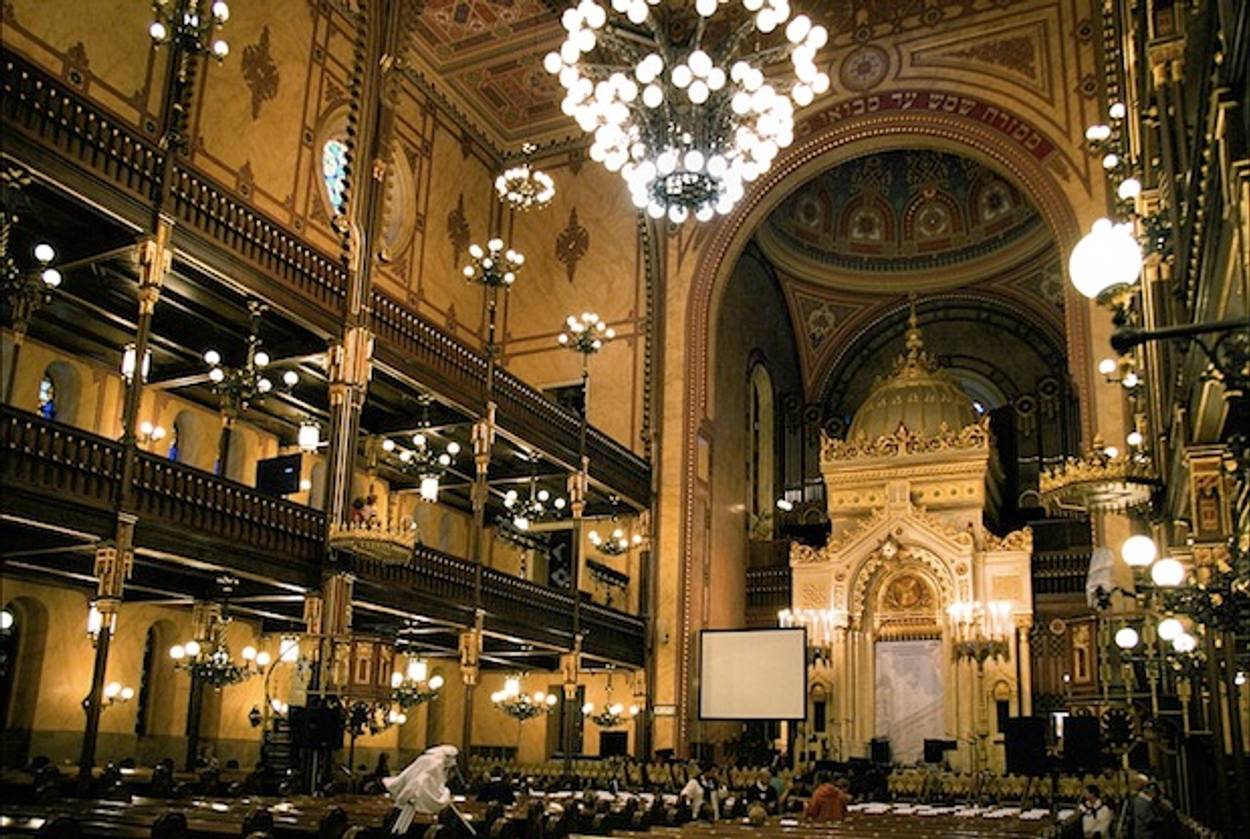Confessions of an Unaffiliated Jew
Study: A million U.S. Jews seek Jewish life outside of shul




I have a confession. Or rather a series of indulgent confessions. I don’t belong to a synagogue and I haven’t belonged to one since I stopped going to Hillel in college seven or eight years ago. What’s more is that I almost never go to synagogue. Not for Shabbat. And, in recent years, not even for High Holidays.
I don’t confess this defiantly. I’m embarrassed by it. In the days immediately following Yom Kippur, when the slate is supposed to be clean and my lengthy list of transgressions is supposed to be effaced, one of my inaugural sins of the new year is fibbing about what I did over the holidays. I’ll say I went to visit family when I didn’t. If I can’t use the excuse, I’ll flat out lie.
I don’t know exactly why I do this. But I do know inexactly. It’s inchoate and hard to explain. If you indulge me a little (or, at this point, a lot), I’ll try to get there. I’ll start by naming a few of my most meaningful Jewish experiences as an adult: buying a pre-wrapped matzah sandwich at the old Jerusalem bus station during Pesach. Going to Shabbat dinner at a friend’s apartment in Tel Aviv and talking about the weekly parsha over whiskey. Leading a Birthright trip. Uttering Gut Shabbas to another Jew on the streets of Brooklyn. Throwing bread into the Hudson during an ersatz tashlich on the Westside Highway. Listening to my mother’s stories. Singing Hatikvah with a group of strangers at a protest in Berlin. Attending a cousin’s made-from-scratch seder. Visiting Yad Vashem in an IDF uniform during Marva.
All this navel-gazing comes to mind because of a study released yesterday by the Workmen’s Circle/Arbeter Ring, which explained that one in six American Jews–a cool one million–“are actively seeking Jewish expression and engagement outside of synagogue life.” The study led by Steven M. Cohen and Samuel J. Abrams labeled these Jews as “The Unaffiliated.”
The choice of the term, “Unaffiliated,” reflects the importance that Jews attach to formal belonging. Whereas certain religious systems place a premium upon faith – hence, terms referencing belief or the lack thereof – Jews emphasize communal ties, with belief and even behavior of secondary importance.
For Jews and especially those highly involved in organized Jewish communal life, “The Unaffiliated” is less a term of opprobrium than one signaling a social problem. “The Unaffiliated” connotes those who are lost – temporarily or possibly permanently – to the Jewish community, if not the Jewish people. Concern about intermarriage, ineffective Jewish education, and unattractive options for Jewish involvement have fueled the perception of large and rising numbers of Unaffiliated Jews, as well as increasing investment in “reaching” them.
But here are some of the traits of Unaffiliated Jews, as per the study’s findings:
As many as 40 percent of the respondents were under the age of 35, nearly three in five fasted on Yom Kippur (approximately three in four of those congregationally affiliated do so) and 46 percent “at least sometimes” have a Friday night Shabbat meal with family and friends. Also, 56 percent said they were “very attached to Israel,” which is larger than any other non-Orthodox group.
It’s likely I perked up at this study because I’d finally been named something. The description fit me. Under 35. Fasts on Yom Kippur. Semi-frequent participant in Shabbat dinners. Very attached to Israel. Check. Check. Check. Check. I wasn’t a denomination or a lost soul (although I trust some commenters will eagerly correct that assertion). Most of all, I wasn’t a bad Jew.
That is the bind of an unaffiliated American Jew. 20% of Israeli Jews are self-declared atheists (which is fine by me, I suppose), but because I am not committed to a community here, I instinctively feel a deficit. I genuinely envy my friends and family who are comfortable in their congregations, even if, for reasons I can’t really explain, I’ve not really felt at home at a synagogue since I was a kid. It doesn’t matter that I’ve spent nearly a tenth of my life in Israel or that I work for the greatest Jewish magazine in the world (wink, wink), I would rather lie than say I didn’t go to shul on Rosh Hashanah. I don’t want anyone to think I was skipping out. I wasn’t.
One in 6 unaffiliated U.S. Jews seeking Jewish expression, poll finds [JTA]
Cultural Jews Release [Workmen’s Circle/Arbeter Ring]
Adam Chandler was previously a staff writer at Tablet. His work has appeared in the New York Times, the Wall Street Journal, the Atlantic, Slate, Esquire, New York, and elsewhere. He tweets @allmychandler.